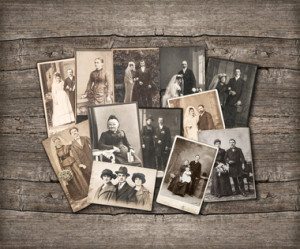How To Conduct An Oral History Project

One of the greatest assets available to you in your quest to understand your family may be sitting right next to you. As researchers, it’s easy to become enamored with histories compiled by other researchers and the primary documents from different eras. Yet as many researchers get older, they find themselves in the unfortunate situation of having failed to ask many of the questions they always wanted to know from people that passed on – parents, grandparents, aunts, uncles, and so on. Here’s an overview of how a genealogical researcher can use oral histories to help inform her work.
Be open to the idea that people’s lives may not have been as you expected: For many people, it’s hard to imagine a time when your grandparents were young, having grand adventures, traveling the world, and falling in love. Perhaps your beloved grandfather fought in a war overseas and remembers important moments of bravery. Maybe your most recent ancestors lived simpler lives, guided by a dedication to their work and a love of family.
Whatever the stories are that emerge, they help you understand specifically where you come from and how members of your family overcame difficulties, achieved goals, and found moments of joy in their lives. Bring your curiosity to the conversation, but work hard to manage your preconceptions.
Ask detailed questions about their lives: Use interview time to explore what their early lives were like. Where did they grow up and go to school? What was their family life like? Who were their friends and what did they do for fun? Discuss school, how they did, and what subjects they loved. How did they choose their career or professional life? If they married, how did they meet? What was courtship and marriage like?
Ask questions about their children, grandchildren, and broader family connections: What funny stories do they remember, and what things have brought them great happiness or sadness throughout their lives? If there are specific questions you’ve always wanted to ask – like for example what made this person convert to a particular religion, become a vegetarian, or decide to spend time overseas – make the time to ask those now.
Use their expertise of other family members: Ask your family member to share recollections of their parents, children, spouses, siblings, and other family members. Often their memories can help fill important gaps in your knowledge about specific relatives and create more complete pictures of their lives. You can also use your relative’s expertise to help identify the people in old family photos and learn more about them.
Preserve your interviews: There are a number of different ways to preserve these interviews. Interviews can be recorded using audio or video equipment. You can also take detailed notes or transcribe your conversation. The more complete the preservation, the more accessible the information will be for generations to come.
Are you interested in conducting oral histories with key members of your family but don’t feel like you have the time or expertise? Contact our offices today to discuss how one of Price & Associate’s professional genealogists can help you plan or conduct and analyze these important conversations.
